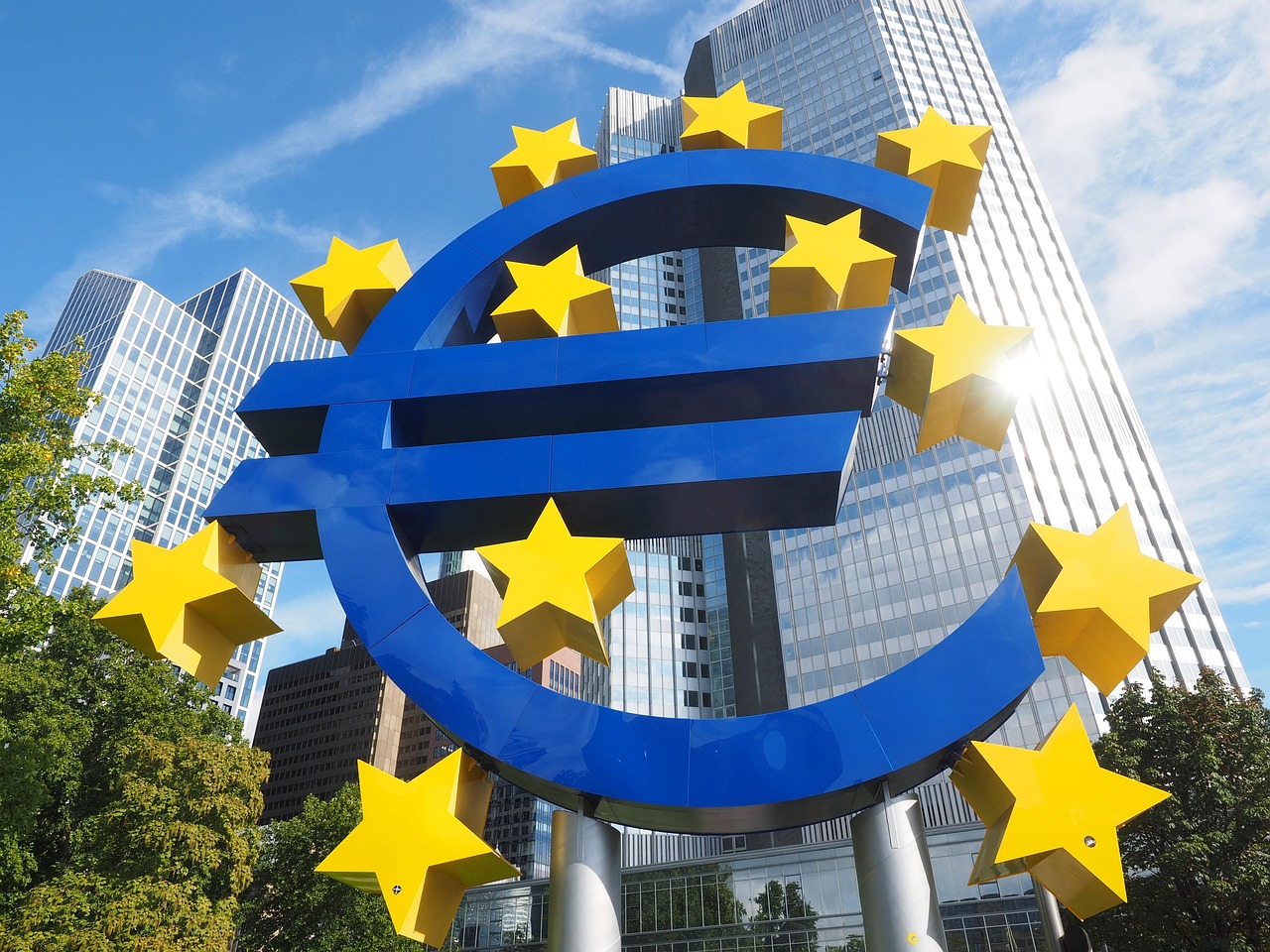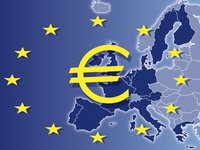The European Central Bank (ECB) says it is holding its benchmark interest rate at 0.5% after a policy meeting today.
ECB President, Mario Draghi commented that the Euro zone economy is still “weak, fragile and uneven”.
Draghi added that the ECB cannot rule out further support for the banking sector. He fears that a prolonged shutdown of the American government may undermine economic growth globally.
During a press conference today, Draghi said that based on their economic and monetary analyses, the ECB Governing Council members decided to keep the key ECB interest rates unchanged.
The ECB believes that underlying price pressures in the Euro zone will remain subdued, at least for the short-term. Monetary, and especially credit dynamics remain weak.
The European Central Bank sees medium-term inflation as remaining well within its target rates “below, but close to, 2%”.
GDP growth during the second quarter of 2013 was positive, for the first time in 18 months. According to confidence indicators up to September, “(there will be a slow but) gradual improvement in economic activity from low levels”.
Draghi said:
“Our monetary policy stance continues to be geared towards maintaining the degree of monetary accommodation warranted by the outlook for price stability and promoting stable money market conditions. It thereby provides support to a gradual recovery in economic activity. Looking ahead, our monetary policy stance will remain accommodative for as long as necessary, in line with the forward guidance provided in July.”
According to the ECB Governing Council, interest rates will remain at their present (or even lower) levels for a long time. Governing Council members base this prediction on inflation remaining low over the medium-term, given that the economy and monetary dynamics are broadly still fragile and weak.
After six quarters of economic shrinkage, the Euro zone saw real GDP growth during the 2nd quarter 2013 of 0.3%.
However, according to industrial production data, the ECB viewed growth in this sector as “somewhat weak” during the beginning of the third quarter. However, survey-based confidence indicators point to signs of further improvement.

European Central Bank expects output to recover slowly
Draghi expects output to recover slowly “in particular owing to a gradual improvement in domestic demand supported by the accommodative monetary policy stance.”
The gradual strengthening of external demand for exports should help economic activity in the Euro zone.
Since the summer there have been overall improvements in financial markets, which should gradually work their way through to the real economy. Progress made in fiscal consolidation should also benefit the economies of member states.
Lower inflation has helped real incomes grow. However, unemployment in the Euro zone remains stubbornly high “and the necessary balance sheet adjustments in the public and private sectors will continue to weigh on economic activity.”
The ECB believes the Euro zone member states’ economies continue facing potential risks. “Developments in global money and financial market conditions and related uncertainties may have the potential to negatively affect economic conditions,” Draghi said.
Some Euro area countries need to implement structural reforms more vigorously. Add to this the prospect of higher commodity prices in the context of renewed geopolitical tensions and weaker-than-expected global demand, it is clear that potential obstacles to economic growth still exist.
Inflation in the Euro zone decreased in September to 1.1% from 1.3% (annualized) the month before, according to Eurostat’s flash estimate. The area has the lowest inflation rate in three years.
The ECB sees the inflation rate as remaining low over the coming months, given the current futures prices for energy. “Taking the appropriate medium-term perspective, underlying price pressures are expected to remain subdued, reflecting the broad-based weakness in aggregate demand and the modest pace of the recovery. Medium to long-term inflation expectations continue to be firmly anchored in line with price stability,” Draghi said.
European Central Bank – Monetary analysis
According to August data, M3 (broad money) growth, and credit in particular, remain subdued. Annual M3 growth continued at 2.3% in August, compared to 2.2% in July. M3 annual growth has been mainly driven by net capital inflows into the Euro area.
M1 annual growth continued apace, but fell in August to 6.8%, compared to 7.1% in July.
The annual rate of change of loans to the private sector is still weak. In August 2013, the annual growth rate for loans to households remained broadly unchanged at 0.4%, in comparison to the average of the previous seven months.
The annual rate of change of loans for non-financial corporations was minus 2.9%, compared to minus 2.8% in July.
Draghi commented “Weak loan dynamics for non-financial corporations continue to reflect primarily their lagged relationship with the business cycle, credit risk and the ongoing adjustment of financial and non-financial sector balance sheets.”
Regarding banking, Draghi said:
“Since the summer of 2012 substantial progress has been made in improving the funding situation of banks and, in particular, in strengthening the domestic deposit base in a number of stressed countries. In order to ensure an adequate transmission of monetary policy to the financing conditions in euro area countries, it is essential that the fragmentation of euro area credit markets declines further and that the resilience of banks is strengthened where needed. Further decisive steps to establish a banking union will help to accomplish this objective.”

